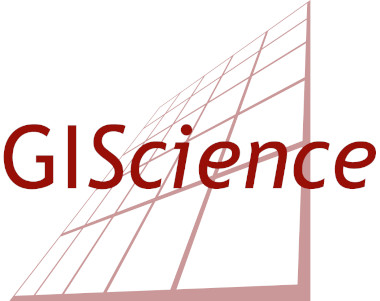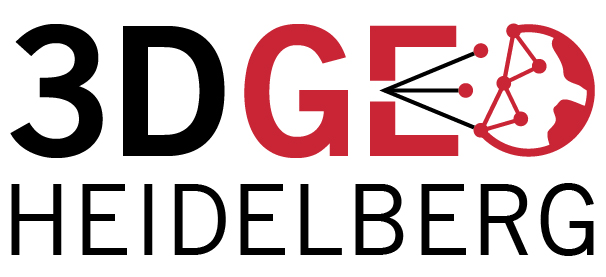This is the Second Part of the CAP4Access e-Newsletter No 2. 2015.
The First Part can be found here. (It needed to be splitted in two parts for technical reasons)
Finding accessible toilets made easy
People in wheelchairs and other people with mobility impairments must be able to find an accessible toilet when needed. What is more, unavailability of such information can deter from taking a trip to places which are otherwise known to be wheelchair-accessible. For example, the decision to visit a restaurant or pub can easily turn into a gamble if there is no knowledge in advance about toilet availability. To address this requirement, Sozialhelden are currently developing a feature, which will be integrated in Wheelmap in the coming months. When adding a tag to a building, the contributor will be asked explicitly to specify whether toilets are accessible, partly accessible or not accessible. The search interface will be enhanced to allow people to look for accessible toilets in the vicinity of the current location.
News
CAP4Access website updates
- The CAP4Access website is being updated continuously to provide insightful information about accessibility related issues. The following updates may be of particular interest:
- Project flyers in English, Spanish and Austrian-German are available at http://cap4access.eu/what_we_do/.
The list of related events, projects and literature has been updated at http://cap4access.eu/resources/
Europe-wide survey on accessibility needs
We are conducting an online survey targeting people with limited mobility and their helpers or carers. We would like to learn about your experiences with accessibility in daily life. The anonymous survey covers mobility needs; information channels and tools used when planning a journey; features in the built environment such as steps, stairs, and kerbs that make it difficult to get around; experiences with using public transportation; and information that would help get out and make travelling to work, school or college or for recreation easier. The online questionnaire is available in English, German and Spanish . Every response will increase our ability to better meet the needs of people with limited mobility across Europe. Please forward to friends and colleagues!
Calling the crowd! Volunteers sought for retrieving sidewalk information for wheelchair routing
Sidewalk data is of essential importance for the development of routing and navigation services tailored to the needs of wheelchair users. Where there is no sidewalk, chances are that a street is close to inaccessible for wheelchairs. Sidewalk information on OSM is still very patchy, however, which means new, innovative methods to collect such data are required. Heidelberg University’s GIScience Group developed an extension for an OSM quality analysis tool that shows streets that do not have a sidewalk tag yet. In order to be able to utilise the support from volunteers, tasks have been designed and placed on the platform crowdcrafting.org to detect sidewalks from Mapillary imagery. The actual task is straightforward and can be carried out by anybody with a few minutes of spare time and a computer plugged into the Internet.
Participate here: http://crowdcrafting.org/app/detectsidewalkinformationfromstreetlevelimages/newtask
Or read more at http://myaccessible.eu/looking-for-sidewalks-on-open-data-day/
Meet us at European Commission sponsored events in Brussels
Net Futures 2015 is a new addition to the range of European Commission organised conferences in the ICT domain. The conference will bring together a large number of interest groups working on the following topics: internet of things, open source developments, the cloud, smart cities, and novel types of ICT-driven entrepreneurship. It will also include consultation meetings that cover cross-cutting topics such as network technologies, software & services, cloud, net innovation, and experimental platforms. The event will be structured around three pillars that represent stages in the life-cycle of an idea: research and innovation, technological validation, and final delivery to market. Net Futures 2015 will be on 25 – 26 March in Brussels. See http://netfutures2015.eu.
On 18 – 19 June 2015, the City of Lisbon will be hosting a major EUROCITIES event on Cities for Accessibility, Jobs and Inclusion. Under the heading “Together towards barrier-free Europe”, the conference will discuss how cities can ensure that everyone, including people with disabilities, the elderly and parents with children can fully participate in society. From the built environment and transport to public websites, accessibility is crucial for the quality of life as well as social and labour market inclusion of many residents. The conference will bring together stakeholders from the EU as well as national, regional and local levels to discuss how to steer the accessibility agenda together. Attendees will be policy makers from the EU, national, regional and local authorities, representatives of civil society and human rights organisations, trade unions, business associations, and research and academia. See http://www.eurocities.eu/eurocities/events/Conference-Cities-for-Accessibility-together-towards-barrier-free-Europe-
7 – 8 July 2015 marks the 2nd International Conference on Collective Awareness Platforms for Sustainability and Social Innovation (CAPS). An entire ecosystem of initiatives innovates the European and worldwide societies through a plurality of voices and approaches, including social entrepreneurship, crowdfunding, sharing economy, P2P, sustainable consumption, just to mention a few. What they all have in common is the use of the internet and the internet of things as a lever to scale, engage, ideate, debate, impact and overall tackle societal challenges. CAP4Access belongs to the first batch of CAPS projects that have started in late 2013 and early 2014. This international annual event provides existing projects and initiatives with an opportunity to discuss their impact, increase their visibility, develop synergies and roadmaps, and liaise with any interested stakeholders: civil society organisations, NGOs, local communities, students and hackers, academic and industrial institutions, policy makers, national agencies, new Members of the European Parliament. See http://caps-conference.eu/ .
__________________________________________
This is a free e-newsletter published by CAP4Access, a project co-funded by the European Commission. It is implemented by a consortium led by empirica GmbH, in cooperation with Elche City Council, Fraunhofer Institute for Intelligent Analysis & Information Systems, MappingForChange, University of Valencia (Polibienestar Research Institute), Sozialhelden e.V., University College London (Accessibility Research Group), University of Heidelberg (GIScience Research Group), and Centre for Social Innovation. The project interacts with the public under the label MyAccessible.EU, also hosting a related website at http://MyAccessible.EU.
Contact person: Karsten Gareis, Project Manager, empirica GmbH (karsten.gareis@empirica.com).
Legal notice: The content of this e-newsletter was prepared by CAP4Access consortium partners and represents their personal views. These views have not been adopted or in any way approved by the European Commission and should not be relied upon as a statement from the European Commission. Reproduction is authorised provided that the source is acknowledged.



